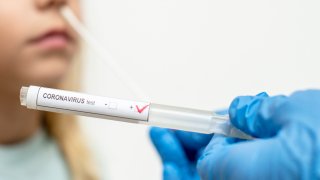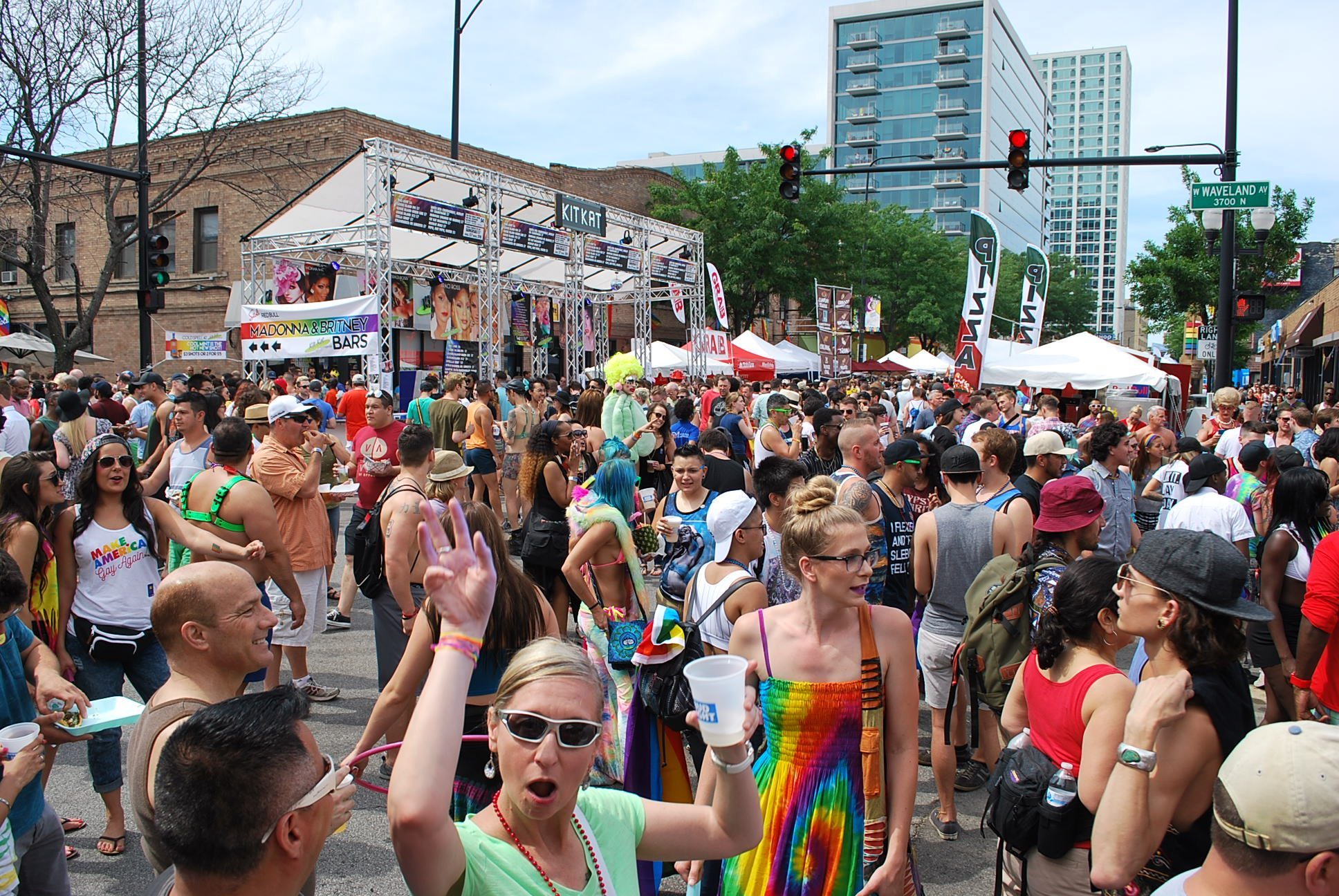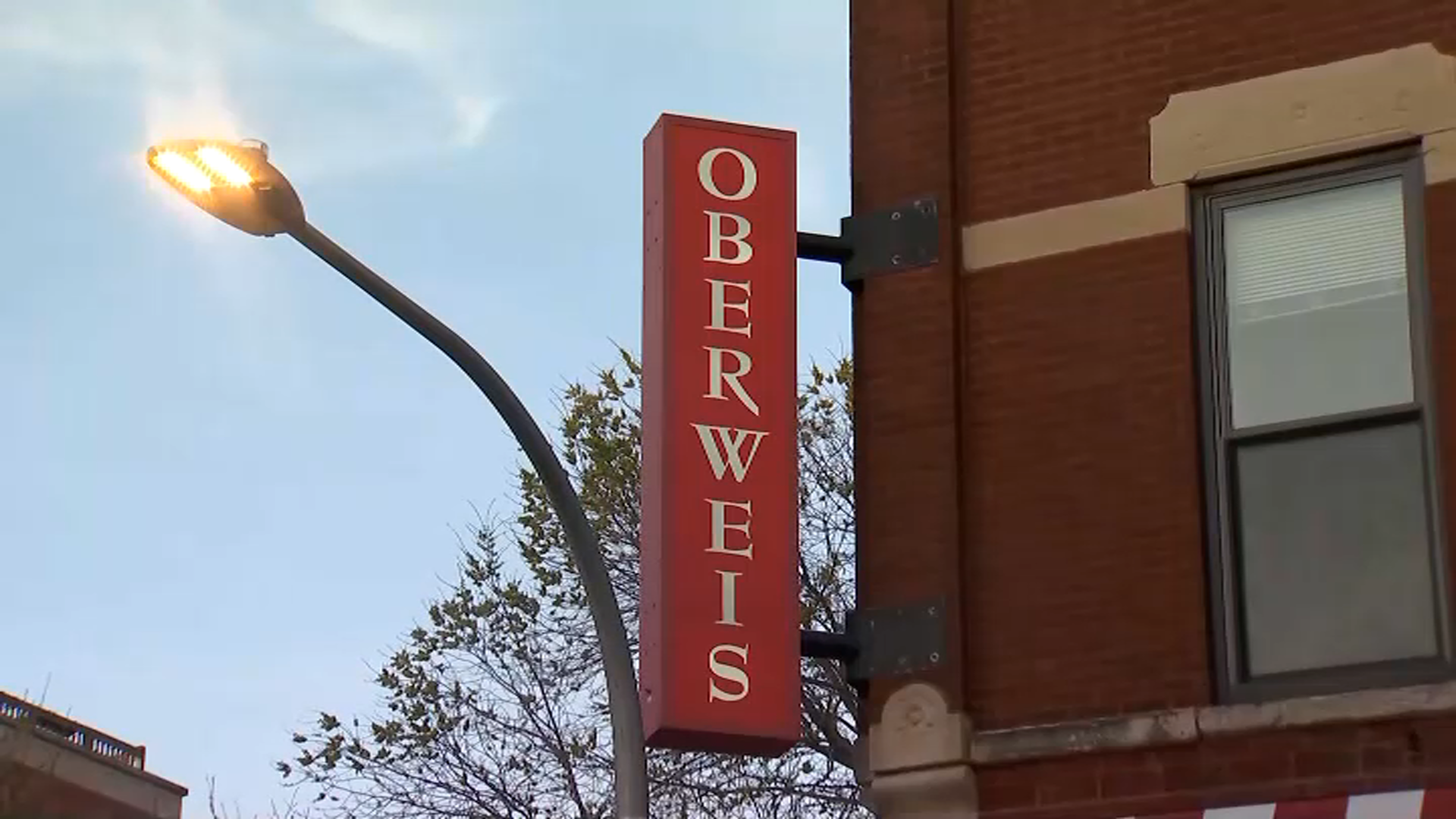
If you recently contracted COVID, how long are you protected and are you at risk of getting the virus again?
The question has been asked since the start of the pandemic, but as the virus continues to mutate, the answers have changed.
Omicron, for example, led to a major shift in "natural immunity," with many who had previously been infected susceptible to reinfection with the new version of the virus.
Now, as omicron makes up nearly all U.S. COVID cases, it's a question of how protection from one version of omicron will work against newer subvariants.
Feeling out of the loop? We'll catch you up on the Chicago news you need to know. Sign up for the weekly Chicago Catch-Up newsletter here.
"At the beginning, we could very confidently, you know, sort of back in February, we could really confidently say that 90% of the people were not getting reinfected if they had COVID already," Chicago Department of Public Health Commissioner Dr. Allison Arwady said last week. "That's been dropping a little bit though around the world."
According to the Centers for Disease Control and Prevention, "after recovering from COVID-19, most individuals will have some protection from repeat infections."
"However, reinfections do occur after COVID-19," the CDC states, adding that changes and mutations "can lead to the emergence of variants that can increase the risk of reinfection."
Local
Last month, Chicago's top doctor said experts were seeing changes in immunity from infection.
"We are seeing people get COVID still, more of these what we call breakthrough infections," Chicago Department of Public Health Commissioner Dr. Allison Arwady said. "But importantly, 'natural immunity' also is not lasting. And so we know that when somebody has had COVID, it's as much about how recently they've had it in some ways, because we are still seeing pretty good protection if somebody had one version of omicron. But we are starting to see, as omicron has continued to evolve, we're starting to see some more people who had original omicron even in December, even getting some of these these new subvariants of omicron."
While such cases aren't the norm, Arwady said, they are starting to rise.
"If you have had COVID in the last few months, your production is pretty good, but we're starting to see some more there," she said.
Currently, Chicago and several surrounding counties remain under a "high community level" for COVID, per guidelines set by the CDC.
But Arwady also warned last week that people should not "try to 'get COVID to get it over with,'" in part because it remains unclear if they could still contract the virus after infection.
"Don't think that getting COVID means you'll never get COVID again," she said. "We see plenty of people get re-infected with COVID. The vaccine is the most important thing for protection."
The uncertainty surrounding natural immunity can be particularly confusing for those experiencing long COVID symptoms.
The CDC says most people with COVID-19 "get better within a few days to a few weeks after infection." But for some, symptoms may last even longer and in other cases may even disappear and then return.
"Post-COVID conditions can include a wide range of ongoing health problems," the CDC states. "These conditions can last weeks, months, or years."
A recent study from Northwestern Medicine showed that many so-called COVID "long-haulers" continue to experience symptoms including brain fog, tingling, headaches, dizziness, blurred vision, tinnitus and fatigue an average of 15 months after the onset of the virus.
"Long-haulers,” are defined as individuals who have had COVID symptoms for six or more weeks, the hospital system has said.
But, according to the CDC, four weeks after infection is when post-COVID conditions could first be identified.
"Most people with post-COVID conditions experienced symptoms days after their SARS CoV-2 infection when they knew they had COVID-19, but some people with post-COVID conditions did not notice when they first had an infection," the CDC states.
Long-COVID symptoms can range from a wide variety of ailments, some of which may even disappear and then return later.
"Post-COVID conditions may not affect everyone the same way. People with post-COVID conditions may experience health problems from different types and combinations of symptoms happening over different lengths of time," the CDC reports. "Most patients’ symptoms slowly improve with time. However, for some people, post-COVID conditions may last months, and potentially years, after COVID-19 illness and may sometimes result in disability."
Testing can also become challenging for such groups as PCR tests can "stay positive for some time," experts said.
"Those PCR tests are very sensitive," Arwady said. "They keep picking up dead virus in your nose for sometimes for weeks, but you can't grow that virus in the lab. You can't spread it but it can be positive."
According to the CDC, some people who contract COVID-19 can have detectable virus for up to three months, but that doesn't mean they are contagious.
Public health officials recommend that even those who contract COVID remain up-to-date with their vaccinations and booster shots.
"I think realistically, this is a guess, but my guess - where we're heading, given that there's no sign yet that COVID has stopped mutating...we've got to keep it from turning into hospitalizations and deaths, which are actually pretty good at already between vaccines and treatments," Arwady said. "But I do think it's likely that in the fall, we probably will see an updated version of a booster that actually has been changed to be more protective against the ways in which COVID has mutated since then."



